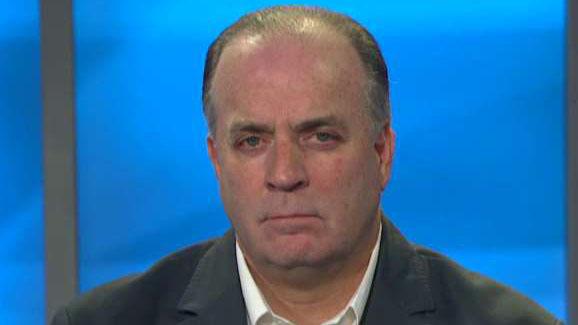China, artificial intelligence, among biggest threats to US workforce
Rep. Dan Kildee said on Sunday that China’s trade practices are the biggest threat to workers in his home state of Michigan.
“When China can produce cheap steel and dump it into global markets, that undermines the ability of our manufacturers to compete,” Kildee, D-Mich., said in an interview on “Sunday Morning Futures.”
Kildee added that U.S. officials must reach an agreement with their Chinese counterparts that will ensure American workers can compete on an even playing field.
“Those other factors are important, but they’re not going to be as important as getting trade right,” Kildee said.
President Trump said he expects to meet with Chinese President Xi Jinping soon in an effort to iron out a trade deal between the two countries. The White House said in a statement that March 1 is a hard deadline to reach an agreement on trade, and will hike tariffs on Chinese goods the following day (as planned) if talks fail. The world’s two largest economies agreed to a 90-day trade truce on the sidelines of the Group of 20 Summit in Argentina late last year.
As the trade war progresses, China continues to face economic headwinds that include lackluster equity and auto markets. Auto sales in China fell 6 percent to 22.7 million units last year, according to the China Passenger Car Association.
U.S. automakers have felt the strain of the less-than-rosy Chinese car market. Michigan, known for its auto manufacturing industry, is home to three of the largest American car manufacturers – known as the “Big Three” – and produced more than 2 million cars and trucks at 11 different assembly lines within the state in 2017, according to data from the Detroit Chamber of Commerce. Automotive-related jobs grew more than 1 percent over the past five years and are expected to grow another 3 percent by 2022.
Kildee said he supports Trump’s decision to push back against Beijing due to the economic threat it poses, but hoped the administration would have taken a different, more strategic approach that would not negatively affect U.S. allies.
“I wish that it would’ve been done in a multilateral fashion because what we ended up doing is essentially penalizing Canada for China’s misdeeds,” the congressman said. “The president was not wrong to take on China when it comes to its dumping of steel.”
But China isn’t the only threat to the American workforce. The advent of new technology – artificial intelligence (AI) in particular – could alter the structure of the U.S. labor force and take away jobs in both blue collar and white collar industries, according to Kai-Fu Lee, CEO of Sinovation Ventures and the former president of Google China.
“Almost all the jobs will change,” he told “Sunday Morning Futures.” It’s just a tool that can, in one domain, take a lot of data and make very smart decisions, better than people. So the more the routine job, the more AI will take over.”
CLICK HERE TO GET THE FOX BUSINESS APP
Lee expects jobs in the customer service and telemarketing fields to be replaced by AI technology, and sees the same happening for more repetitive jobs, like dishwashers, drivers and assembly line workers.
“Altogether, it’s going to be a large number of jobs that are displaceable by AI in the next 15 years,” he said.




















